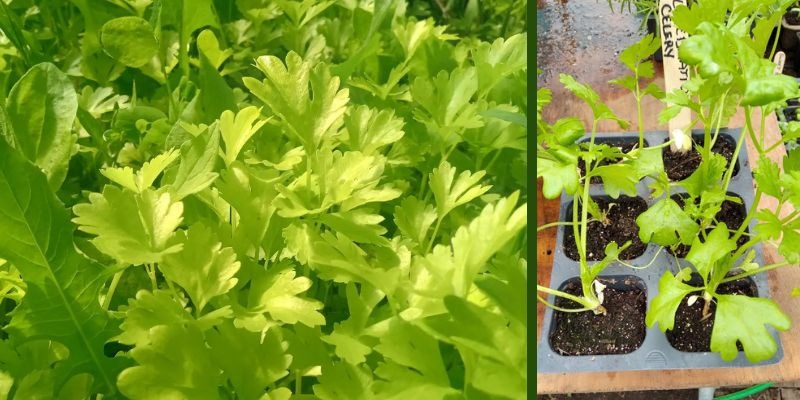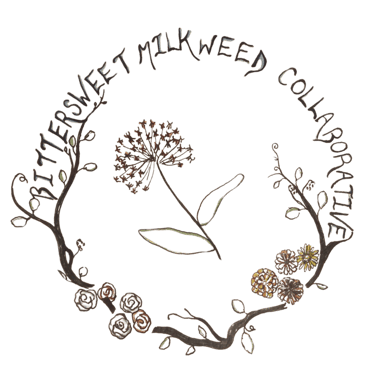September 2024
Finding joy in nature's rhythms, deepening our commitment to non-monetary exchanges, and sharing stories of community, resilience, and seedkeeping.
Kia-Beth Bennett
9/8/20246 min read


Hello all,
The past couple weeks have given me much to contemplate. As cool weather emerges and harvest really explodes, I’ve found myself in need of quiet, restorative moments. I’m finding space here and there to sit under a tree, stroll into the woods or watch pollinators amongst blossoms. I’ve been waking earlier to see the sunrise.
I’ve also been deeply exploring the myriad responses to our last newsletter – the one announcing our efforts to step outside the market economy and into neighborliness. It’s not an easy step for anyone – for us, it means putting more faith in the ancestral network of humans and non-humans. It means being creative and brave about building neighbor-to-neighbor connections that limit our ‘need’ to spend money. It does, as I said last month, feel like jumping off a cliff into the fog. For you, reader, it may feel difficult to understand the logic of this move. After all, it’s a step of love, and love is not valued or practiced by the colonial-capitalist culture. You may fear for us, or want to offer alternate suggestions.
For me, diving into the ocean of non-monetary exchange – of living for love and not profit – has brought a greater desire to share stories, nurture relationships and continue along this path. Once you’ve started, it becomes so much fun – way more fun that selling a product – that you just can’t stop! Friends and acquaintances doing the same work have stated just that. We don’t have full bank accounts – we have full life accounts.
So why don’t I share a little of that life-fullness, and some of my deeper thoughts, with you? Perhaps it’ll help you understand this path more fully.
One recent afternoon, I wound up seated on the bench under the 20-year-old silver maple in Kazakhstan, one of the food forests here. Said garden is aptly named after the food forest that stretches, in part, through the nation of Kazakhstan, feeding billions over thousands of years. Here in this little Kazakhstan, connections and liveliness abound. My eyes were drawn to the stunning blue of the lobelia and the motion of the fuzzy bumblebees who pollinate them. The orb-weaver spiderwebs were just visible in the sun, stretching between sunchokes and barnyard grasses. I felt, rather than saw, the katydid who whizzed past my head to land on a branch, and I noticed from the corner of my eye the sleek chipmunk with their little tail held out for balance as they climbed the pear tree and sniffed at unripe fruit. I relaxed in the garden for little over an hour and I was witness to such exquisite color, life, diversity and uniqueness. The dappled sunlight that peeked through the maple leaves, the effervescent milkweed tufts that floated by, and the squeaks and squawks coming from the animals renewed my spirit.
Memory, too, exists in this garden. I cannot pass through without noting the lemon balm, oregano, creeping thyme and Maltese Cross my mother planted years ago. I grew in this garden, learning from her how to mulch, which plants to pull, how to harvest herbs and keep seeds. We spent hours here, our idea of fun involving dirty hands, tiny root hairs and soft, floral smells. This year especially, I’m drawn to the Par-cel cutting celery, Celebration celery (pictured above) and perennial lovage. Celeries are difficult to grow in the North Country, but my mother’s care and perseverance mean that celery on this farm readily reseeds and spreads.
Celebration celery was originally offered for sale by the New Mexico-based seed company, Seeds of Change. When Mars Bars, Inc – yes, the candy company – purchased Seeds of Change in 1995, they rapidly began dropping varieties. Noticing that Celebration grows well in this region, Ann began isolating plants and saving the seeds. Over nineteen years, she became (as far as we can tell) the sole caretaker of Celebration in the country. She saved a variety from extinction. Now I’m tasked with the responsibility of maintaining these plants, of harvesting them every year for seasonings, meat stuffing, meat pie, pickles and more. We’ve passed them on to Turtle Tree Seeds for regrowth, and to friends and family, because the best way to ensure seeds survive is to share them. Diverse growers in diverse ecosystems help seeds survive climate chaos, human burnout, migration and genocide. Stockpiling seeds in a vault does nothing if there isn’t someone to regrow each variety every few years. Stockpiling in general can break the cycle of love that has existed between seeds and seedkeepers for all time.
Within that cycle are the ties between seedkeepers. We share a love of plants, seeds, renewal, a firm belief in a land-based future, and devastation at the deliberate destruction of the seed-human relationship. Mohawk seedkeeper Rowen White tells how seed elder Steve McComber was gifted the very last ear in existence of a specific red bread-flour corn. He painstakingly revitalized said corn, then collaborated with Akwesasne seedkeepers and the Hudson Valley Seed Hub to seed five acres in traditional planting grounds near Albany. There are now thousands of pounds of red bread corn being distributed amongst the greater community, revitalizing an important piece of culture. Or we can look to the olive groves of Palestine – many of those trees are hundreds of years old, their caretaking passing down through generations. While wars, droughts, floods, colonialism and genocides rock their world, Palestinian farmers of all ages and genders protect, tend to, and fight for their farms and their culture. Every year, thousands of heartbroken global travelers head to Palestine to help with the harvest, which takes place between October and November. What will happen if this year, there is no harvest? What do a people whose culture has been bombed do to survive? I watch videos of survivors, coming home to find trees miraculously still standing. I watch videos of survivors collapsing when they discover their trees have been bulldozed.
There are many messages one can, and should, take from these tales. But I offer this: the true diversity of seeds, plants, growers and the culture thereof cannot be commodified. True growing culture depends on a diversification that expands past the boxes of capitalism, and anything that can’t be commodified in the market system is destroyed by that system. Red bread corn was almost wiped out because the colonialists sought to destroy an entire culture, one that, because of their diversity and knowledge, existed outside the colonial world. Red bread corn doesn’t fit into colonial values, therefore corn and their caretakers have no monetary worth, and so they are systematically attacked.*
What we are attempting here at the BMC, then, is not a social experiment or desperate cry for help. It is a continuation of the inevitable – that life, in all its splendor, cannot be caged for very long. As an operation, we are still straddling the line, sending the bank and insurance companies monthly payments while giving away garlic and spuds. As an ecosystem, we’re healing those strained relationships between ourselves and other beings, reaching out to friends and strangers with joy and understanding. We’ve been discussing food gifting with visitors, sending out newsletters, reconnecting with old friends, building sanctuary and providing for others the leg up they need in that moment. And they are doing the same for us. Last week, I learned how to milk goats. Folks are contributing to our finances and signing up for notifications. Next month, my new housemate and crew member moves in. We’ve built an entire pig barn with gifted, secondhand lumber. The circle is going around, faster and more smoothly every day.
As always, I encourage you to explore our work, either through contacting me – milkweedtussocktubers@gmail.com, 315 777 7245 or 1190 State Highway 184, Heuvelton, NY 13654. Instagram - @bittersweetmilkweed - or on Facebook. Check out the website and donate here or through Venmo - @MilkweedTussockTubers.
Wishing you all the best,
Kia-Beth Bennett
P.S. The above is also available as a Google document. Share it far and wide!!
*Please note that I’m white; I’ve no historical ties to the Mohawk people or culture. I’m relaying a story I know to be important and using it as a clear example of systematic attacks on food growers and seedkeepers, and the inherent resiliency of land-lovers to pass by and overcome the monetary system. For further information on the red bread corn story and Mohawk seed keeping, please explore www.sierraseeds.org or The Indigenous Seed Keepers Network at www.nativefoodalliance.org. I’m clearly not Palestinian and the aforementioned statement applies to my sharing of the olive tree tales. For more information, you can start with this article . I then suggest you watch recent videos posted online by growers in Gaza.
